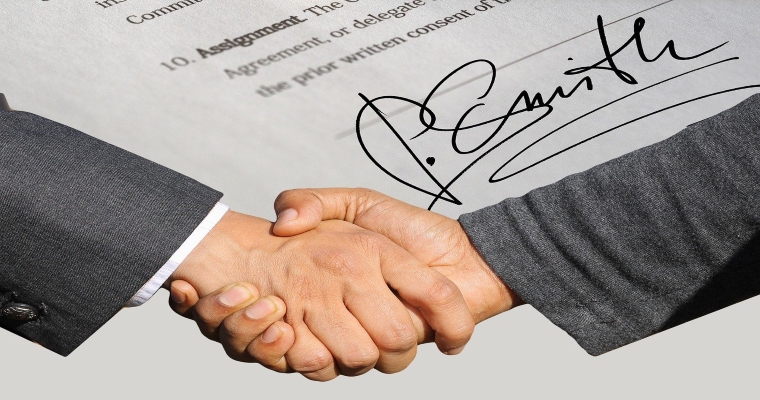A Phuket property reservation agreement is often the first formal document in the buying process. It temporarily removes a villa or condominium from the market, outlines key terms, and secures the buyer’s initial deposit while due diligence takes place.
Understanding exactly what is written into a reservation agreement is essential. The terms protect both parties, but without careful review, they can also expose buyers to risks. This guide explains how these agreements work, what to check before signing, and the safeguards overseas and local buyers should be aware of.
A reservation agreement is commonly used when securing off-plan projects, resale villas, or a foreign freehold condo in Phuket, allowing buyers to hold the unit while due diligence and contracts are finalised.
What Is a Phuket Property Reservation Agreement?
A reservation agreement is a short legal document used to “reserve” a property for a fixed period of time. It serves as a signal of intent from the buyer while the seller agrees not to market the property to others.
Key Terms in a Phuket Property Reservation Agreement
-
Property details – address, project name, or unit number.
-
Purchase price – the agreed amount at the time of reservation.
-
Reservation fee/deposit – usually between 2-5% of the property value.
-
Reservation period – how long the property will be held (commonly 30 days).
-
Conditions for refund – when and how the deposit is returned if the purchase does not proceed.
Deposit and Refund Policies
The reservation deposit is normally deductible from the final purchase price. Refund conditions vary:
-
If the property fails due diligence checks, deposits should be refunded in full.
-
If the buyer withdraws without valid reason, the deposit may be forfeited.
Steps to Review a Reservation Agreement Carefully
The reservation agreement is often signed quickly, but it should never be treated lightly.
Identifying Hidden Clauses
Clauses may limit refund conditions or commit the buyer prematurely. Watch for wording that restricts due diligence rights or imposes penalties without clear justification.
Working With Legal Professionals
Independent legal review ensures the document matches Thai law and industry norms. Lawyers can request amendments, insert refund clauses, and protect against one-sided terms.
Common Risks in Phuket Property Reservation Agreements
Non-Refundable Deposits Without Clear Conditions
Some agreements state deposits are “non-refundable” regardless of outcome. Buyers should insist on conditions that allow repayment if legal or financial checks reveal problems.
Misleading Terms by Developers or Agents
Overseas buyers in particular must be careful with marketing promises. A reservation agreement should reflect only the property’s legal status, not verbal assurances or sales claims.
Note: The Office of the Consumer Protection Board (OCPB) now requires that reservation agreements for condominium units follow contract-controlled business standards, with clearer clauses for refund rights and termination conditions.
Practical Tips for Overseas Buyers
-
Use Power of Attorney – appoint a trusted representative if you cannot attend in person.
-
Request dual language contracts – English and Thai versions must match exactly.
-
Keep digital and physical copies – retain signed copies for reference.
-
Transfer funds correctly – deposits should go through official channels with full documentation.
Summary: Phuket Property Reservation Agreement Guidelines
A reservation agreement is a useful tool for securing a property, but only if reviewed carefully. It outlines price, payment terms, and reservation period, but also dictates when deposits are refundable.
To stay protected:
-
Review all clauses before signing.
-
Ensure refund conditions are clearly stated.
-
Always seek independent legal advice.
-
Retain all signed copies.
-
Never rely solely on verbal promises.
Handled correctly, a reservation agreement provides security and time for due diligence. Handled carelessly, it can lead to unnecessary losses.
FAQ: Reservation Agreements in Phuket
Q: What is the purpose of a reservation agreement in Phuket property transactions?
It secures a property for a buyer while legal checks, financing, and contracts are completed.
Q: Is the reservation fee refundable?
It depends on the contract. Refunds are possible if due diligence fails, but deposits may be forfeited if the buyer pulls out without cause.
Q: Can a reservation agreement be used for all property types?
Yes, they are common for off-plan projects, resale villas, and foreign freehold condos.
Q: Who holds the reservation fee?
Usually the developer, seller, or agent. In some cases, it may be held in escrow. Always confirm.
Q: Does a reservation agreement guarantee ownership?
No. It only secures the property temporarily. Ownership transfers only after signing the Sales & Purchase Agreement and registering at the Land Office.
Related Guides
Conclusion
Reservation agreements in Phuket are a useful first step in securing property, giving buyers time to conduct due diligence, arrange financing, and prepare contracts. However, their terms vary, and buyers should always review conditions carefully before signing. Whether used for a villa, leasehold land, or a foreign freehold condominium, a well-drafted reservation agreement helps ensure both parties are committed during the crucial early stage of a transaction.
Disclaimer: The information contained in this article is provided for general informational purposes only and does not constitute legal, financial, or investment advice. While every effort has been made to ensure accuracy at the time of publication, property laws and regulations in Thailand are subject to change. Readers should always seek independent legal advice from a qualified Thai lawyer before making any property-related decision or transaction.


Social Contact